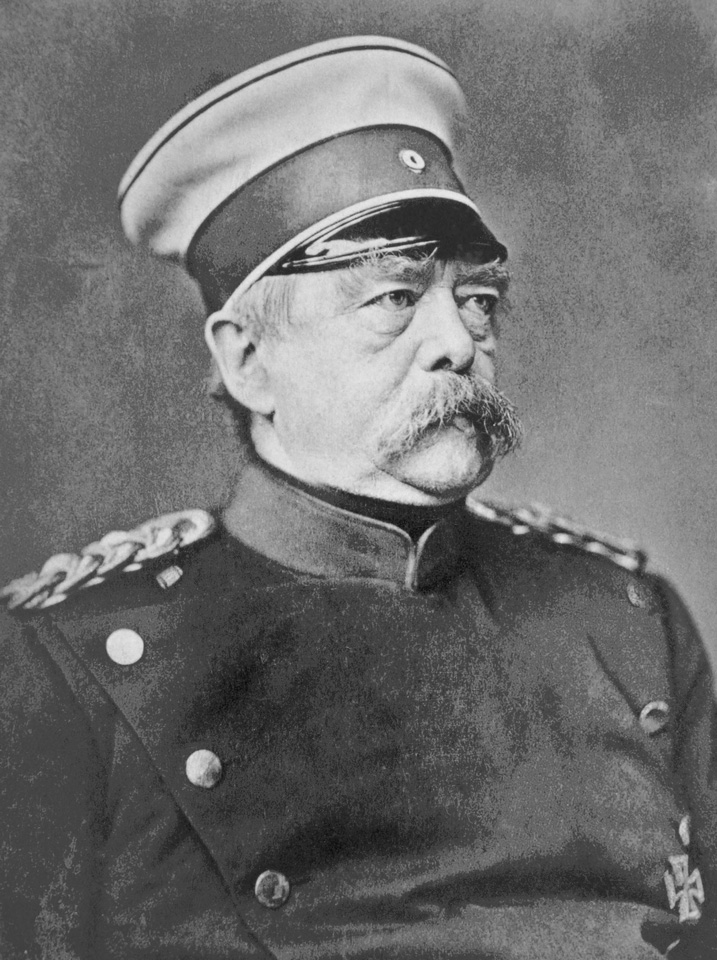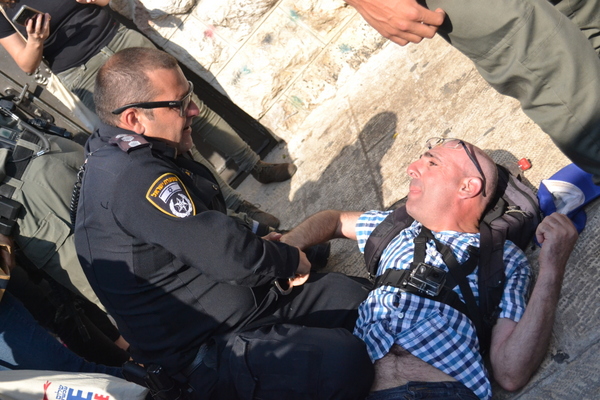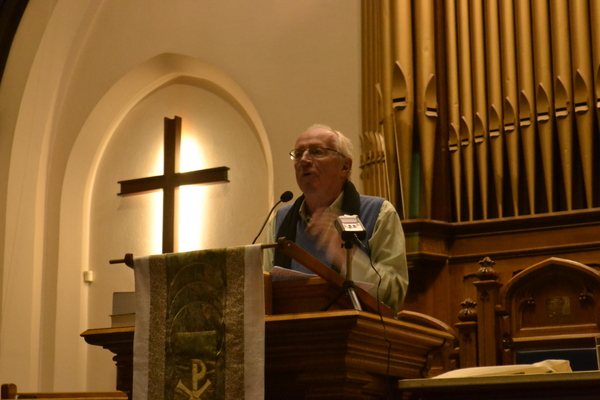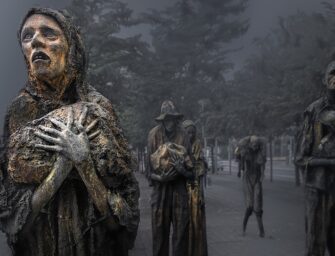Faustus Be Damned – Trump & Chaos in the Middle East
By David Kattenburg
In a hyper-polarized world where everyone disagrees about everything and even the most cut and dried affairs seem uncertain, an eminently erudite, well-traveled and literate critic is liable to draw a large crowd.
Robert Fisk, dean of Middle East journalism, is one such man.
This past Remembrance Day evening, over a hundred people crowded into a Baptist Church hall in chilly Winnipeg to hear the venerable British correspondent for the Sunday Express, Times and now The Independent — author of the monumental works The Point of No Return, In Time of War, Pity the Nation and The Great War for Civilization — expound on this supremely tumultuous region, based on over forty years of reporting.
Outside, a lonely Zionist protested in the freezing cold, angered by Fisk’s Lebanon reporting and criticism of Israel.
Expound Fisk did, in virtuosic and occasionally convoluted fashion, delving down deep into the weeds. At least three members of his audience (all highly educated) came away shaking their heads, perplexed and bemused by the fast moving, seemingly disjointed, tangent-packed disquisition of one of the world’s most renowned journalists.
I felt the same way, at first. Having listened back to the audio, fixing it up a wee bit in quiet solitude, I’ve changed my mind. Like a classic novel, great painting or masterful three-hour film, Robert Fisk’s lecture improves the second and third time around.
Fisk’s demarche is complex: a continuous parade of personal tales, factual details and rumination, centering on a half-dozen interconnected themes: the shallow, uncritical and disingenuous nature of the mass media. How the media fumbles and mutilates transcendent stories that deserve more. The nature of good and evil, how technologies mediate and distort, whether there’s life after death, and if justice will prevail.

The State of Trump (Kattenburg)
Of course, Donald Trump pops up on various occasions: his mind (“seriously mentally unstable”), his formless, shiftless “foreign policy,” and the choice that’s been foisted on the world between “a lunatic in the White House and a sane tyrant in the Kremlin.”
How Putin has played Trump like a fiddle, moving with ease and sophistication between Al-Sisi, Erdogan, Assad and the Iranians — Trump’s “Arabs” — sharing prestigious cultural experiences the inept Trump has no notion of and couldn’t care less about.
Trump’s claim of victory over Day’esh, of course, was nothing of the sort, snorts Fisk. Who knows what just happened in Mali just a while ago, he queries his audience? A handful of people raise their hands (media reports on this are scarce). Islamic State forces have just executed forty-six Malian soldiers, he informs the crowd. A pack of luckier ones managed to run away.

Otto von Bismarck
While Trump’s Tweets consume the media, they’re really nothing new, Fisk insists. World leaders have been tweeting for years. Take Otto von Bismarck’s famous one-liner, for instance, about the Balkans not being “worth the bones of a single Prussian grenadier.” (Fisk attributes the quote to Kaiser Wilhelm in this talk).
“Not a bad Tweet,” says Fisk!
And Lord Balfour’s November 1917 Declaration — not a bunch of paragraphs, as most people think, Fisk points out, finger wagging, but one single sentence sixty-seven words in length. Sixty-eight, if you consider “non-Jewish” to be two words.
“A handbook for dispossession in one sentence,” Fisk chuckles. Balfour, like Trump, was fond of semantics, “negativizing” native Palestinians (of various faiths) in his imperial dispensation, as what they were not.
Semantics continue to thwart justice, in Trump’s Tweets and other modern communication technologies, Fisk says. A case in point: Netanyahu, Trump and Kushner’s “Deal of the Century,” designed, not to create peace, but to “impoverish the Palestinians into compliance.”
Israel-Palestine is “heading towards apartheid Israel and gastarbeiter Palestinian communities across the West Bank and Gaza,” Fisk says.

Freedom fighter ballet, Palestine (Kattenburg)
Shifting to an area of notable expertise, Syria, Fisk points out what everyone in the room knows, that things have turned out differently than the way they were supposed to, back in 2011, as proffered in the media. The supposedly popular Free Syrian Army wasn’t very much, it turns out; far smaller in ranks than official estimates trafficked by the media; swiftly supplanted by Islamic cults the US and its allies helped create in Iraq in 2003, who ended up receiving support from the Saudis, Gulf emirates and Turkey (not to mention the US and some Europeans).
One of Fisk’s most compelling personal accounts in his Winnipeg talk: how he confirmed the source of the weapons Day’esh and Al-Nusra used in their fight against Bashar Al-Assad. Rummaging through an abandoned Nusra bunker in eastern Aleppo, just seized by the Syrian army, Fisk came across documents for the M-75 mortars and 120mm shells Al-Nusra had been raining down on Syrian forces; stuffing them into a large school satchel he carries for the purpose. Then, weeks later, tracing the weapons to a factory dispatcher in a village in Bosnia, who he actually visited (documented in a new film called This is Not a Movie), who informed him that the mortar and ordnance had been picked up by Saudis.

Israel’s Separation Wall, Aida refugee camp, Bethlehem (Kattenburg)
“Gotcha!” Fisk mutters to his audience, with relish. Everything the media tells us is wrong. Equally unforgivable, their accounts are packed with cliches, shallow analysis and obfuscatory semantics, that Fisk rhymes off: “clashes,” “walls” and “fences”; “settlements” vs. “colonies” vs. “neighborhoods.” And “terrorists” galore.
Sadly, Fisk discloses to his audience, who know this full well, the bad guys didn’t just pop up, we created them, and they’re worse than everyone thinks.
Worse still, our allies the Saudis, who nurtured Day’esh in order to overthrow the evil Assad regime, are now pitching to be Assad’s friend. Ambitious to make a killing in the Syria reconstruction industry, whilst edging out their arch-enemy Iran, the folks who killed and chopped up Jamal Khashoggi have been sidling up to Assad’s friends the Russians.
In short, the bad guys have won, and there’s a racist lunatic in the White House.
 It is at this point that the estimable Robert Fisk slips off the rails, or seems to, as he proceeds to excavate the curious psychologies of Donald Trump and the ‘Islamic State’; justice, death and the afterlife in the minds of Islamic cults; their Faustian bargain — far less straightforward than Faust’s, it turns out — and how souls get sold in today’s wired world, sometimes in the most hideous of ways.
It is at this point that the estimable Robert Fisk slips off the rails, or seems to, as he proceeds to excavate the curious psychologies of Donald Trump and the ‘Islamic State’; justice, death and the afterlife in the minds of Islamic cults; their Faustian bargain — far less straightforward than Faust’s, it turns out — and how souls get sold in today’s wired world, sometimes in the most hideous of ways.
Evoking Hannah Arendt, Fisk argues that the “cult of wickedness” is actually boring, devoid of anger or fury, more machine than brain. He recounts coming upon piles of cassettes in an abandoned cellar in Fallujah, apparently recorded in Chechnya, instructional videos of Russian soldiers getting decapitated. In another basement cache, Fisk discovered videos of Day’esh victims getting drowned in cages, shot from seven different angles.

Akram Khaled, his wife Fadya and family (Courtesy Rignan Wangkhang)
In the end, a supreme irony: the mindless but appallingly heinous zeal of Day’esh and Al-Nusra turned out to be no match for the lure of the US dollar. Fisk pulls out legal Caliphate tender — a bunch of copper and silver coins IS had minted. Day’esh’s subjects preferred greenbacks.
And they shucked the Caliphate for life in the West, risking their lives in unimaginable ways. The millions of Syrian and Iraqi refugees who’ve flooded Europe are proof the West has won. “Victory for our civilization,” Fisk mutters. “Total defeat for Day’esh.” And yet, Syrian and other immigrants have been widely viewed as a threat!
“In geopolitical terms, we got it completely wrong,” Fisk concludes.
He ends his talk by returning to the central questions at hand: What about God, justice on Earth, death and the afterlife? Raconteur to the core, he recounts a pair of conversations he had with a Hezbollah soldier in Lebanon (the militant ably proves his point), with a pair of Lebanese journalists, one Shia, the other Sunni, on a snow-covered road in the mountains above Beirut, and with the Reverend Ian Paisley in his office at Stormont. Fisk impersonates Paisley wonderfully.

Israeli activist Guy Butavia dragged to pavement by Israeli border cop (Kattenburg)
Robert Fisk’s bottom line:
“The Middle East is a place of betrayed souls, of justice sought but unfulfilled, of brutality most vile, often created by us, and engendered by us and the people who live in these vast lands. They do not deserve it — the Muslims, Christians and Jews of the Arab world. They have done nothing to earn so terrible a reward, and we do not own their lands. They do not belong to us, and they are not our people .. almost all these people still believe in God, and for the most part they believe in an afterlife. They still demand justice, still remain largely fearless in the face of death. That is the type of courage (or is it faith?) that we in the West still do not recognize.”
Robert Fisk’s Fall 2019 tour of Canada was organized by Canadians for Justice and Peace in the Middle East.






Latest Comments
[…] US military nuclear testing site. At the time, residents were relocated to nearby Rongerik and Kwajalein atolls before arriving at Kili Island in […]